The protection of the rights of Ukrainian journalists and the need to bring Russian propagandists to justice became the main emphasis of the participation of the President of the National Union of Journalists of Ukraine (NUJU), Sergiy Tomilenko, in the events dedicated to World Press Freedom Day held in New York held under the auspices of UNESCO and the UN.
The Union’s President noted this in a comment for Channel 5.
Sergiy Tomilenko emphasized that his speech on the grounds of the UN General Assembly at the forum on the occasion of World Press Freedom Day placed a great responsibility on him, the only representative of Ukraine at the event. The problems of journalism’s survival during the war were discussed. Sergiy Tomilenko‘s speech’s primary focus was on the role of Ukrainian journalists in wartime, as some of them sometimes have to pay with their lives for the opportunity to deliver timely and truthful information to readers.
The NUJU President pointed out the need to release UNIAN news agency’s citizen journalist Dmytro Khyliuk, the journalist captured by the occupiers in March last year, and all professional and citizen journalists illegally convicted in Crimea from Russian captivity. In addition, Sergiy Tomilenko noted the importance of bringing Russian propagandists to justice despite their journalistic status. The persons, who actively promoted the war, must face a tribunal for the crimes against Ukraine.
“I had the honor to show the audience the copies of local Ukrainian newspapers that we, as the National Union of Journalists of Ukraine, help to publish in the front-line and de-occupied territories,” said Sergiy Tomilenko. “I showed the Novyi Den newspaper, which is published for Kherson, the Vpered newspaper, which is published for the residents of Bakhmut, and the Zoria newspaper, published for the residents of Lyman.”
Sergiy Tomilenko said that these are not military but classic civilian newspapers, which serve as a ray of hope for the people of Kherson, Bakhmut, and Lyman today.
“For Ukrainians remaining in danger, this is an important means of obtaining information. We see that the Russians are primarily destroying the infrastructure, trying to destroy life in the front-line territories,” Sergiy Tomilenko noted. “Accordingly, Ukrainians in the front-line territories cannot consume TV or radio news, let alone online. So, the traditional print media are a source of verified information that often saves lives, helps with evacuation decisions, etc. In fact, I carried out a kind of promo tour for Ukrainian front-line newspapers in the States.”
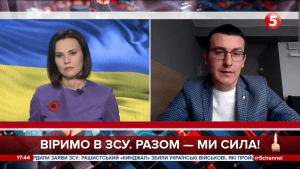
Sergiy Tomilenko added that Russian occupiers, trying to submerge the temporarily occupied territories in a news desert to subdue the local population, are using their propaganda newspapers printed under the brands of respected Ukrainian ones, such as Mariupol’s Pryazovskyi Robochyi.
The NUJU President said that during the screening of the 20 Days in Mariupol movie organized by EN America, one of its authors, Mstyslav Chernov (who, together with his colleagues Yevhen Malolietka and Vasylisa Stepanenko, received a Pulitzer Prize this year), stressed that during the blockade of Mariupol, the townspeople believed the information was more important than food. When they saw a journalist or a cameraman, they often approached and wondered about what actual situation in the Russian-Ukrainian war.
“In its information policy, Ukraine should support Ukrainian media to the utmost, especially those that broadcast in critically important territories,” said Sergiy Tomilenko.
The NUJU President noted the considerable role of Ukrainian journalists, including local ones, who are currently performing their important work in physical danger and lack of funding. For his part, Sergiy Tomilenko noted that he used his communication with leading American journalistic organizations to implement special support programs for Ukrainian media.
Today, front-line media receive support from foreign financial partners, such as UNESCO and the Swiss Fondation Hirondelle.
“I spoke with the management of Hirondelle, which is already financing 18 regional Ukrainian media recommended by the NUJU,” said Sergiy Tomilenko.
The Union’s President said he had a meeting at the U.S. Department of State. He called for the support of Ukrainian media and journalists in the current critical time.
“We must combine our efforts to support them. Journalists should inspire Ukrainians to victory by providing objective information,” Sergiy Tomilenko concluded.
NUJU Information Service

 THE NATIONAL UNION OF
JOURNALISTS OF UKRAINE
THE NATIONAL UNION OF
JOURNALISTS OF UKRAINE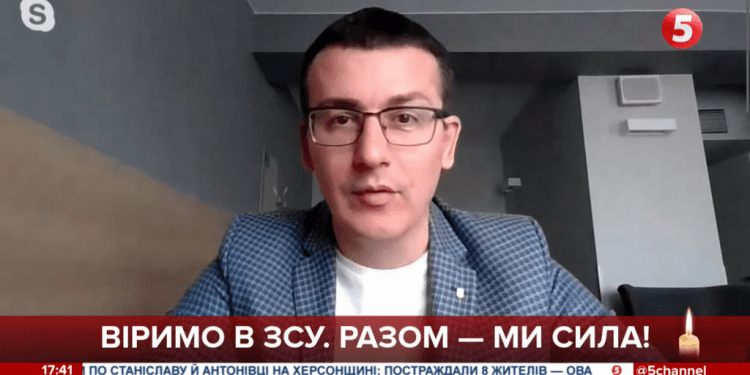
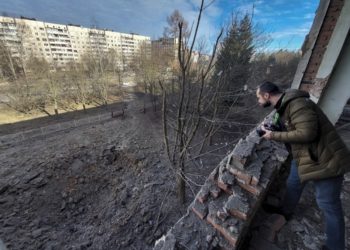
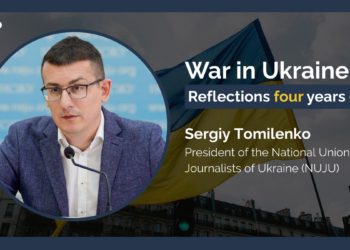
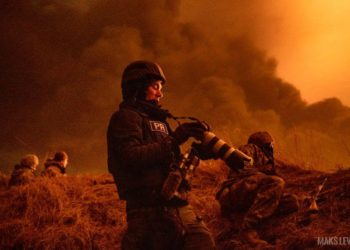













Discussion about this post